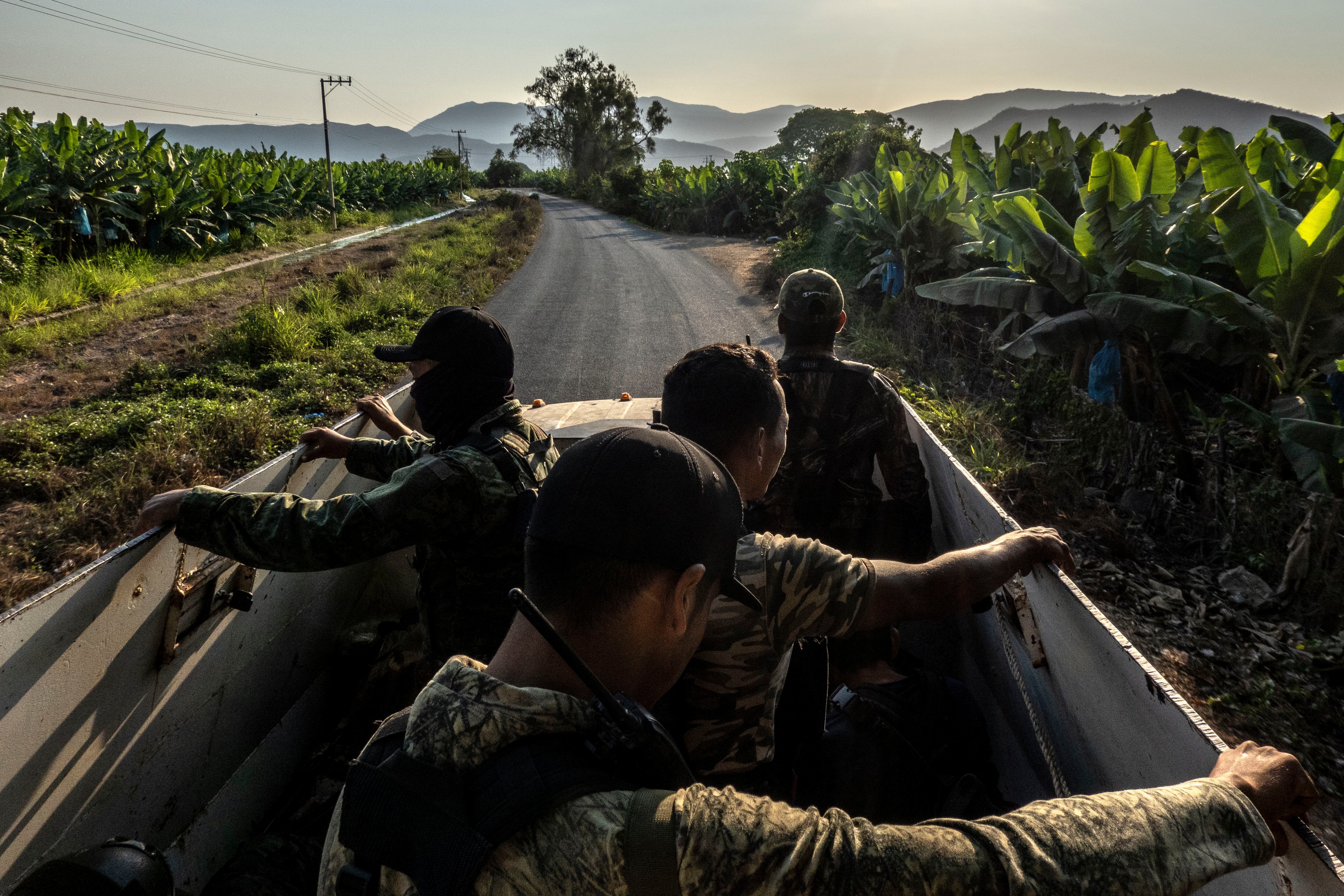A young boy named Óscar Alejandro Ortega directs the group, which is made up of the relatives of missing people from Tecomán, a city in the small western Mexican state of Colima. He is only 16. While many kids his age are happily zoned out, he has spent the past year looking for his aunt.
“They don’t let me search,” he protests, “because I’m a minor.” He explains that the Attorney General’s Office prevents him from entering the properties near Tecomán, where officials and relatives — those of legal age, at least — search for the bodies of their loved ones in unmarked graves. The excuse is to protect him from horror.

.. but no matter what, he still suffers every day because of the fact that his aunt, whom he used to live with, isn’t at home.
Óscar listens carefully to Mely Romero, a senatorial candidate for the PRI-PAN-PRD coalition, the principal opposition to the ruling Morena party. When he finally gets a chance to tell her his story, with the support of other relatives of missing people from all over the state, the candidate doesn’t really know what to say. In the hour that has passed since the meeting began, she has heard the complaints of mothers, sisters and grandmothers.
They have filed reports through official channels and have been mistreated in the Attorney General’s offices. There’s been a prevailing refusal to investigate the disappearances of their loved ones, while they’ve also faced a constant revictimization. It’s common fo.
















